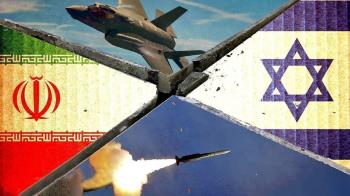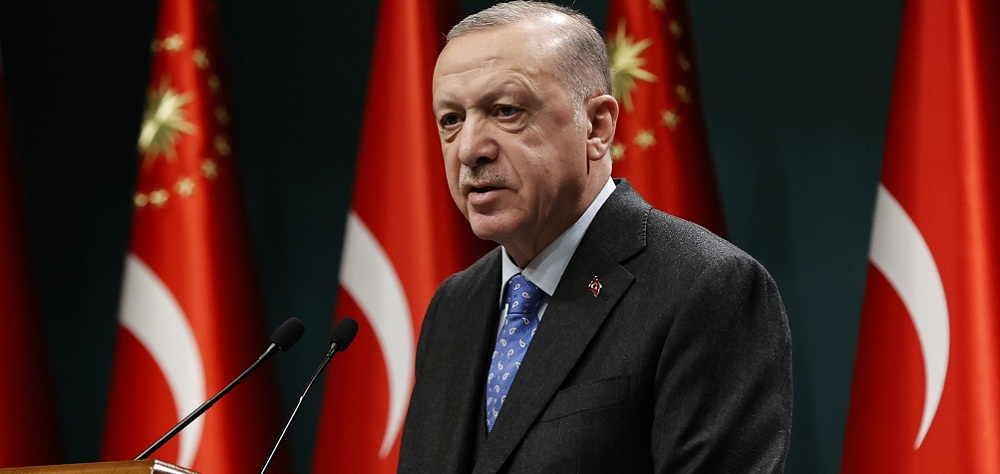Alwaght- While in recent days news of possibility of a meeting or a phone conversation between the Turkish President Recep Tayyip Erdogan and his Syrian counterpart Bashar al-Assad were strongly rejected by Turkish officials, the signs of Ankara's inching tendency to execute diplomacy with Damascus are captivating the attention more than the rejections of such possibility.
Recently, Foreign Minister Mevlüt Cavusoglu of Turkey claimed that he had a short meeting with his Syrian counterpart Faisal Mekdad during Non-Aligned Movement (NAM) summit in Belgrade in October.
"We need to somehow come to terms with the opposition and the regime in Syria. Otherwise, there will be no lasting peace," he said he told Mekdad, adding: "To prevent the division of Syria, there must be a strong administration in Syria. The will that can dominate every corner of its lands can only be achieved through unity and solidarity."
The remarks more than anything express Turkey's softening stance and possibility of restoring diplomatic relations between the two neighbors.
Indeed, it should not be forgotten that this position is not the only one of this kind, and for example, in September last year, a prominent newspaper close to the government in Turkey reported work to arrange a meeting between Hakan Fidan, the undersecretary of Turkish National Intelligence Organization and Ali Mamluk, the head of National Security Bureau of Ba'ath Party.
Here is a question: What is motivating Erdogan to seek to restore diplomatic relationship with Turkey's southern neighbor?
Absence of positive outlook for Turkish occupation
The possibility of Turkish rapprochement with Syria grows while Ankara has been the largest backer of foreign terrorist groups in Syria over the past 11 years of Syrian conflict and even tried to set up a buffer zone in northern Syria to keep away what it claimed to be threats to its borders from the Syrian side. But this plan, which Ankara pushed hard to implement, has so far failed to see the light as no regional or international actor supported it.
From another aspect, Turkey planned to launch a new operation in northern Syria but in the current conditions it firesees no clear horizon for continuation of occupation of Syrian territory since the Syrian armed forces are resolved to liberate the remaining occupied territories and forever dispose of terrorist groups and this can cause a confrontation between the two armies. Also, Russia as the broker of Astana peace initiative is strongly pushing for withdrawal of foreign occupation forces from Syria and sees existence of them a violation of the national Syrian sovereignty.
Although Turkey had planned the start of a new campaign in northern Syria in recent months in order to push the Kurds away from its borders, due to the cooperation of the Kurds with the Syrian government to deal with the common threat, Ankara officials are afraid they cannot achieve success in future operations, and on the other hand, military operations may push the Kurds into the arms of the central government. Cooperation between Damascus and the Kurds is perilous for Turkey's interests, and Ankara may have come to believe that it can better manage the threats posed by the Kurds through interaction with Damascus.
The Syrian army has reinforced its positions around Idlib—the last stronghold of Turkish-backed terrorist groups— and at the same time, the militias are involved in infighting, and this issue can play into the hands of the Syrian government to make the most of the escalation of tensions between the terrorists to crush them forever in a finishing operation. This is while Turkey plans to continue to use the Takfiri militia card to put strains on Damascus so that it can get concessions from the Syrian government in any future negotiations. In a way, Ankara wants to look open to Damascus detente in order to steer clear of Syrian campaign to recapture Idlib.
No more regional or international support
In the past 11 years seeing its confrontation with the Syrian government reaching a peak, Turkey has been enjoying massive Western-Arab support and has been following its devastating plans in Syria with their backing.
Erdogan was trying to gain the favorable opinion of the Arab rulers by supporting terrorist groups fighting Damascus government, but currently the Arab countries themselves have moved towards the normalization of relations with Syria and are trying to upgrade their relations with it to the pre-war levels, and the West has changed its previous positions and does not talk about ousting President Assad as they realized they cannot remove him and install their obedient government.
Some Arab countries that were top Damascus enemies during the years of crisis are taking steps forward to reconcile with Syria. Therefore, the course of developments tells the Turkish leaders they cannot take privileges from the Arab rulers by hostility to Syria or backing its terrorist opponents anymore. So far, Erdogan was viewing any rapprochement with Syria a matter of prestige due to regional considerations and relations with the Arab states, but now that the Arab League plans Syria return, he sees no need for continuation of tensions.
With Turkey seeing no regional allies backing its agenda in Syria, Erdogan thinks that in case of new tensions or military campaign, he should expect tense ties with Syria's staunch allies Russia and Iran with whom he agreed last month to help ease the tensions in Syria.
Turkey now has no other way than mending ties with Syria as it failed to realize its goals. While the war was in its climactic point, anti-Syrian actors failed to topple President Assad through support to terrorism. Now that they abandoned their plans against the Syrian leader and the terrorism is relatively uprooted, a new military action not only will not help, but also Turkish costs will up as Syrian army emerged stronger from a decade-long war against terrorism, and this perhaps works against Erdogan ahead of 2023 elections. Actually, a defeat in Syria provides a great opportunity for Erdogan's political opposition to bring him down after two decades in rule and this is against Erdogan's will who wants to stay in power by any means.



























